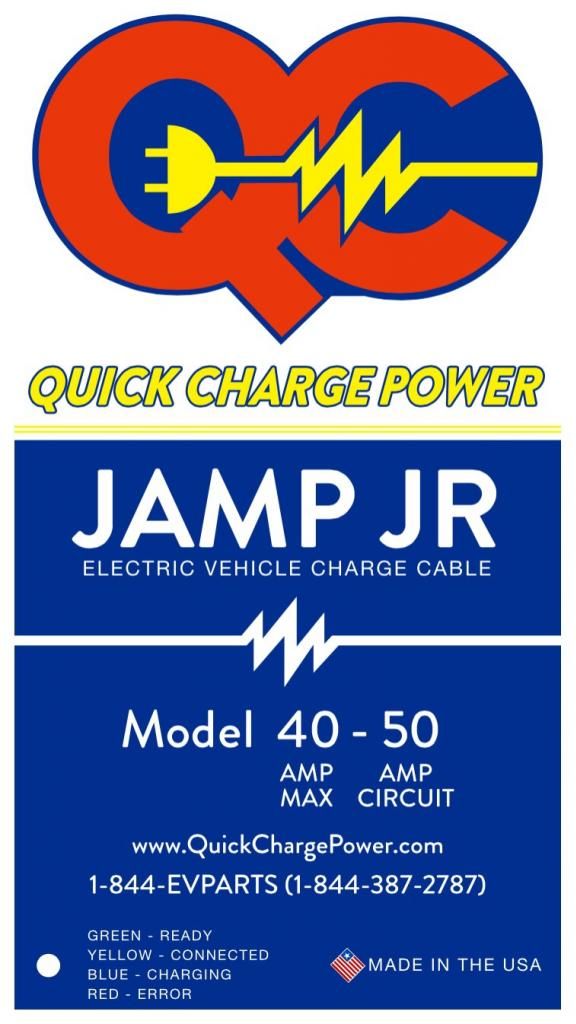QueenBee said:
Any updates on this product, Tony? Have a few questions.
Will it also support 120 volt?
It should work at 120 or 240 volts, based on the model.
JAMP JR
Price - Model Amps - Circuit Rating - Wall Plug
240 volt - $499 - Model 40-50 (NEMA 14-50)
240 volt - $449 - Model 32-40 (NEMA 14-50)
240 volt - $399 - Model 24-30 (L6-30)
240 volt - $349 - Model 16-20 (L6-20)
120 volt - $299 - Model 12-15 (NEMA 5-15)
Obviously the input cords/plugs on the various models will be different but will the relays, internal wiring, J1772, etc. all be the same, meaning upgrading it would be as simple as changing the input cordset and changing the pilot.
These aren't intended for hobbyist use or for modifications. We do not support that. The warranty would be void for any modifications.
I assume you will be keeping it simple so no button/LCD option?
No options beyond the different models listed above.
Any plans for providing support for some of the advanced features that are still early in development relative to the rest of the OpenEVSE project such as network connectivity and power metering?
JAMP JR will never have any options. It is intended to be simple, low cost, no installation expense, just a "Plug-N-Charge
tm" unit for consumers. Future products from our company may provide the features you are looking for.
I don't recall if this issue has been completely fixed in the latest OpenEVSE designs but does the automatic testing done when it first starts still cause upstream GFCIs to trip? I believe the issue was the ground presence check was causing current on ground which was above standard GFCI receptacles tripping point.
We haven't had these issues, but that doesn't mean that some combination may cause issues.
I really hope this product does well and has enough momentum to allow you to justify getting it NRTL listed as I think some competition in the NRTL listed EVSE market would be a great to help bring prices down more. I also think the process would shed some light on any deficiencies in standard OpenEVSE builds which would lead to improvements in that project.
I doubt that spending $20,000 to $50,000 for testing will bring the price of our product down!!! JAMP JR is not UL or otherwise listed. I really have no idea if other manufacturers would change prices higher or lower based on our product.
It's great to see OpenEVSE being utilized in commercial products as this certainly has kept your R&D costs much lower for this product unlike some others who decided it would be better to reinvent the OpenEVSE instead of supporting it.
That is precisely how we can keep the price reasonable.


